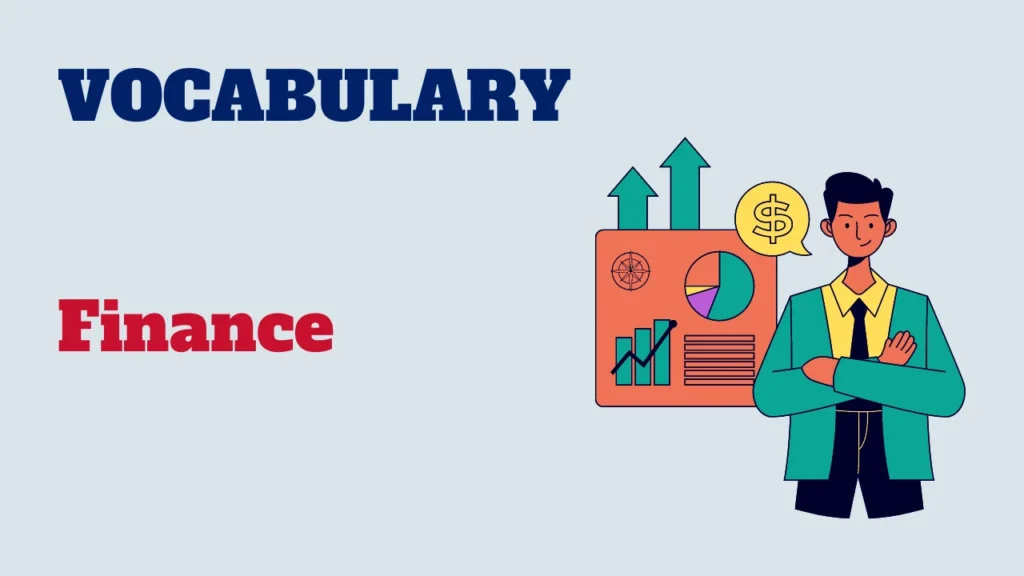Embark on a linguistic voyage into the world of finance, where words become the currency of comprehension in matters of money management, investments, and economic principles. In an era where financial literacy is a cornerstone of success, understanding the vocabulary associated with finance is key.

Whether you’re a budding investor, a business professional, or an individual keen on mastering the language of money, this vocabulary lesson is tailored to equip you with the terminology needed to navigate the intricate landscape of finance.
Finance vocabulary
- Finance: The management of money, banking, investments, and credit.
- Asset: Something valuable owned by an individual, organization, or country.
- Liability: A financial obligation or debt.
- Equity: The ownership interest in a company; the residual interest in the assets of an entity after deducting liabilities.
- Portfolio: A collection of financial assets such as stocks, bonds, and cash equivalents.
- Diversification: The strategy of spreading investments across different assets to reduce risk.
- Risk: The probability of loss or the chance that an investment’s actual return will differ from its expected return.
- Return on Investment (ROI): The ratio of the profit or loss made in a venture relative to the amount invested.
- Liquidity: The ease with which an asset can be converted into cash without affecting its market price.
- Hedge Fund: A pooled investment fund that employs various strategies to earn returns for its investors.
- Bull Market: A financial market characterized by rising prices and optimism.
- Bear Market: A financial market characterized by falling prices and pessimism.
- Credit Rating: An assessment of the creditworthiness of an individual, corporation, or government.
- Derivative: A financial contract whose value is derived from the value of an underlying asset.
- Bond: A fixed-income investment where an investor loans money to an entity (typically a government or corporation) for a defined period at a fixed interest rate.
- Capital: Financial assets or the financial value of assets.
- Dividend: A payment made by a corporation to its shareholders, usually in the form of cash or additional shares.
- Net Worth: The difference between an individual’s or company’s assets and liabilities.
- Inflation: The rate at which the general level of prices for goods and services is rising.
In the dynamic landscape of finance, mastering this vocabulary is akin to possessing a key to unlocking the mysteries of investments, banking, and economic decision-making. These words not only enable effective communication but also empower individuals to make informed choices about their financial well-being. Whether you’re delving into the world of stocks, assessing risks, or planning for the future, this lexicon equips you with the language to navigate the intricate web of financial concepts. May these words serve as your guide on the path to financial understanding and success in the diverse realms of the financial world.



